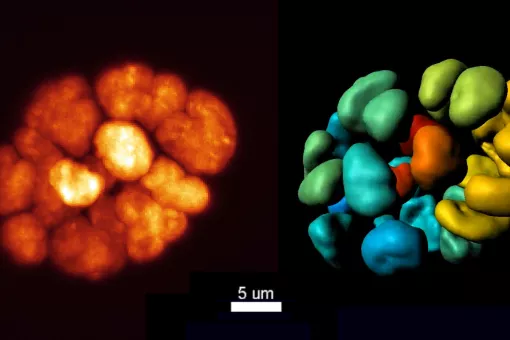Images
IRB Barcelona participates in a European project aimed at finding new antibiotics against resistant microorganisms.
Infections caused by bacteria are increasing worldwide. After decades of defeat by antibiotics, resistant strains of bacteria have emerged, causing a rise in meningitis, tuberculosis, and several respiratory, urinary and gastrointestinal diseases. Gram-negative bacteria, a category of microorganisms that is very difficult to treat because they are covered by a double membrane, have developed resistance to most of the antibiotics currently available. These are particularly serious for hospital patients with weakened immune systems. The project AntiPathoGN has now been awarded six million euros by the European Union to address these kinds of bacteria. AntiPathoGN is coordinated by the "Universitat Autònoma de Barcelona" (UAB) and includes eleven centres, among these the Institute for Research in Biomedicine (IRB Barcelona).
"Finding new anti-infective agents against gram-negative bacteria is necessary because, in addition to antibiotic resistance, there is no new drug in developmental stages for the coming years", explains project coordinator Xavier Daura, from the UAB.
Bacteria survive, become virulent, and acquire resistance to antibiotics thanks to interactions between their molecules. Studying these interactions may reveal weak links that could be targeted by new drugs. The AntiPathoGN project will use bioinformatics and a wide range of other techniques to look for interactions between molecules that play key roles in these processes. The project brings together experts in systems biology, comparative interactomics, microbiology, structural biology and drug development.
Patrick Aloy, ICREA researcher at IRB Barcelona, is one of the specialists in interactomics, the leading methodology of the project. This approach studies the relationships between the proteins encoded in a complete genome. "A genome is a complete 'parts list' that tells us the proteins each organism can produce," Aloy says. "The interactome shows us how those parts fit together into machines. Having access to the interactomes of several different bacteria will allow us to detect the components that are most biologically vulnerable for specific species and also for all gram-negative bacteria."
AntiPathoGN will study the four most harmful gram-negative bacteria: Pseudomonas aeruginosa, Helicobacter Pylori, Acinetobacter baumannii and Escherichia coli. For example, P. aeruginosa is an "opportunistic" microroganism because it rarely infects healthy individuals but attacks those with weak immune systems, such as patients with cystic fibrosis, AIDS or cancer. Of note, hospital infections caused by P. aeruginosa lead to death in more than 40% of the cases. Another example is a certain type of E. coli, strain O157:H7, which causes serious and sometimes lethal intestinal infections through contaminated food.
The AntiPathoGN project involves six labs in Spain, three in Germany, one in France and one in Bulgaria. Seven of the 11 partners are companies.
About IRB Barcelona
The Institute for Research in Biomedicine (IRB Barcelona) pursues a society free of disease. To this end, it conducts multidisciplinary research of excellence to cure cancer and other diseases linked to ageing. It establishes technology transfer agreements with the pharmaceutical industry and major hospitals to bring research results closer to society, and organises a range of science outreach activities to engage the public in an open dialogue. IRB Barcelona is an international centre that hosts 400 researchers and more than 30 nationalities. Recognised as a Severo Ochoa Centre of Excellence since 2011, IRB Barcelona is a CERCA centre and member of the Barcelona Institute of Science and Technology (BIST).





